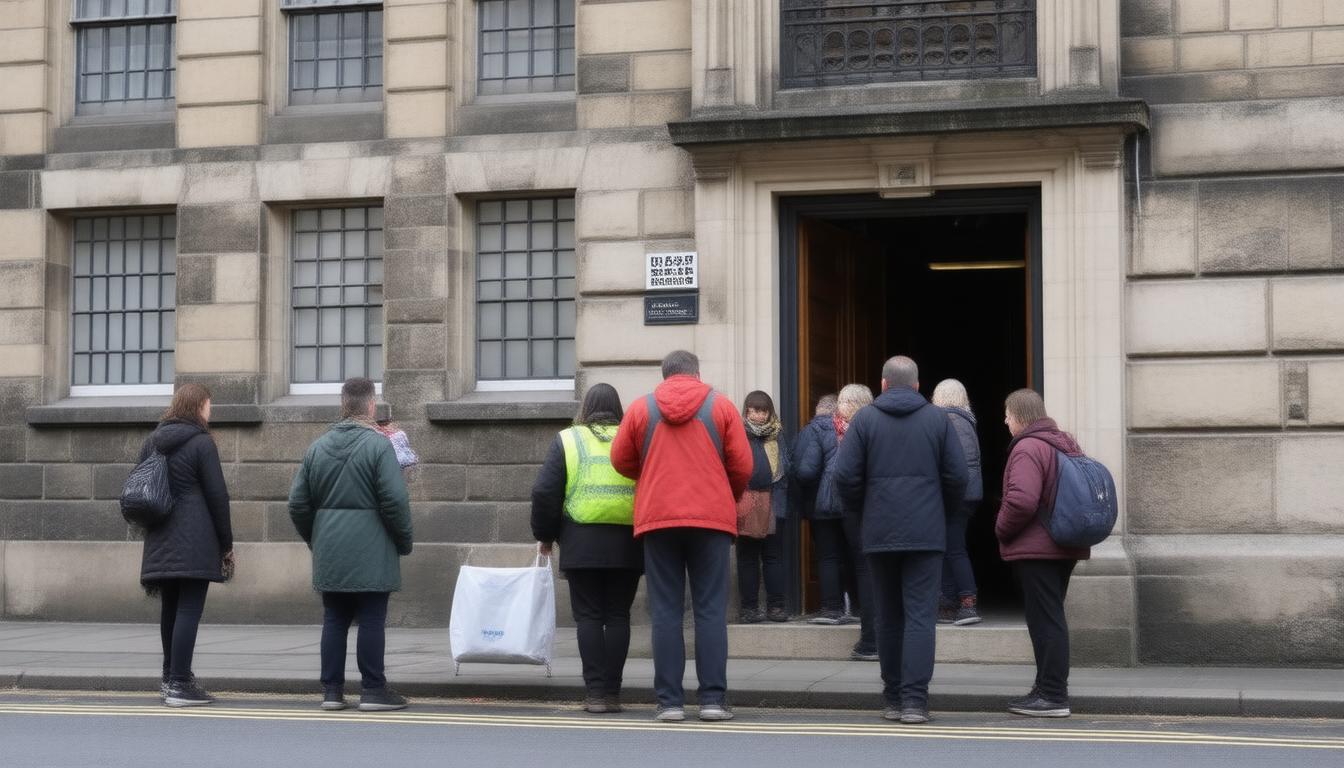The City of Edinburgh Council is taking decisive action to address the growing homelessness crisis by relocating hundreds of individuals currently living in unlicensed hotels and bed and breakfasts (B&Bs). This initiative emerges as a response to the alarming rise in the need for temporary accommodations, a situation exacerbated by the ongoing implications of the Covid-19 pandemic. In Edinburgh, over 700 households are residing in 28 properties that are non-compliant with Houses in Multiple Occupancy (HMO) licensing regulations, raising serious concerns about their safety and living conditions (Edinburgh Council, 2024).
As a part of this crucial relocation plan, the council has temporarily suspended new applications for social housing and has prioritized valuable resources toward ensuring that displaced residents move to lawful accommodations by the beginning of December. The decision comes following legal warnings about possible criminal offenses associated with unlicensed operations, with emphasis placed on maintaining requisite health and safety standards expected of landlords (BBC News, 2024).
The situation arose after the council had previously broadened access to temporary accommodations during the pandemic. However, many landlords failed to secure the necessary HMO licenses, despite regular inspections. Reports indicate a dramatic increase in the number of households in temporary accommodation, escalating from approximately 3,570 in 2020 to over 5,000 in 2024 (The Guardian, 2024). This article delves into the impact of these unlicensed hotels on homelessness in Edinburgh, the council’s current initiatives, and its future strategies for sustainable housing.
Key Takeaways
- Edinburgh Council is relocating hundreds of homeless individuals from unlicensed hotels due to health and safety concerns.
- The council’s decision comes as the number of households in temporary accommodations has surged significantly since the pandemic.
- To prioritize this relocation, the council has paused new social housing applications and non-urgent repairs.
The Impact of Unlicensed Hotels on Homelessness in Edinburgh
In November 2024, the City of Edinburgh Council has initiated a significant move to address the issue of homelessness exacerbated by the use of unlicensed hotels and B&Bs across the city. Over 700 households currently residing in 28 properties that do not comply with Houses in Multiple Occupancy (HMO) regulations are set to be relocated. This decision arises amid a continuous rise in demand for temporary housing, a situation worsened by the lingering effects of the Covid-19 pandemic. Consequently, the Council has implemented a suspension on new applications for social housing and deferred certain non-urgent repairs, focusing on reallocating resources to ensure these vulnerable individuals are placed in compliant accommodations by the start of December. The seriousness of this action stems from legal advisories warning about potential criminal activities related to health and safety breaches by landlords of unlicensed establishments. Prior to this decision, the Council had expanded access to temporary accommodations during the pandemic; however, compliance issues arose as many landlords either neglected to secure HMO licenses or failed to meet essential safety standards, despite undergoing inspections. Reports indicate a dramatic increase in the number of households relying on temporary accommodation rising from approximately 3,570 in 2020 to more than 5,000 in 2024, highlighting the urgent need for effective housing solutions in Edinburgh (City of Edinburgh Council, 2024).
This strategic initiative not only aims to safeguard the welfare of homeless individuals but also signals a strengthened commitment from local authorities to regulate the accommodation sector more robustly, ensuring safer living conditions and compliance with established regulations.
Council Initiatives and Future Strategies for Housing
Moreover, the City of Edinburgh Council is set to enhance its collaboration with local housing associations and charities to create more permanent housing solutions. This partnership aims to increase the stock of affordable housing available to homeless individuals transitioning out of temporary accommodation. The council has announced plans to deploy financial resources previously earmarked for other projects to bolster its efforts in building new homes and refurbishing existing properties to meet the increasing demand for housing. Additionally, the council’s strategy encompasses engaging with community stakeholders to identify local housing needs, thereby ensuring the developed solutions are tailored to those affected most by the housing crisis. Edinburgh’s proactive approach is seen as a necessary shift towards sustainable housing policies, focusing on long-term solutions rather than short-term fixes. The council anticipates that by the end of 2025, a significant reduction in the number of individuals living in temporary accommodations will be realised as they transition into stable living environments.





